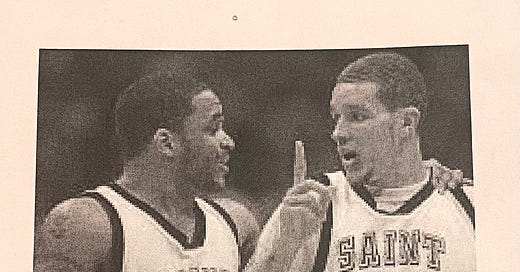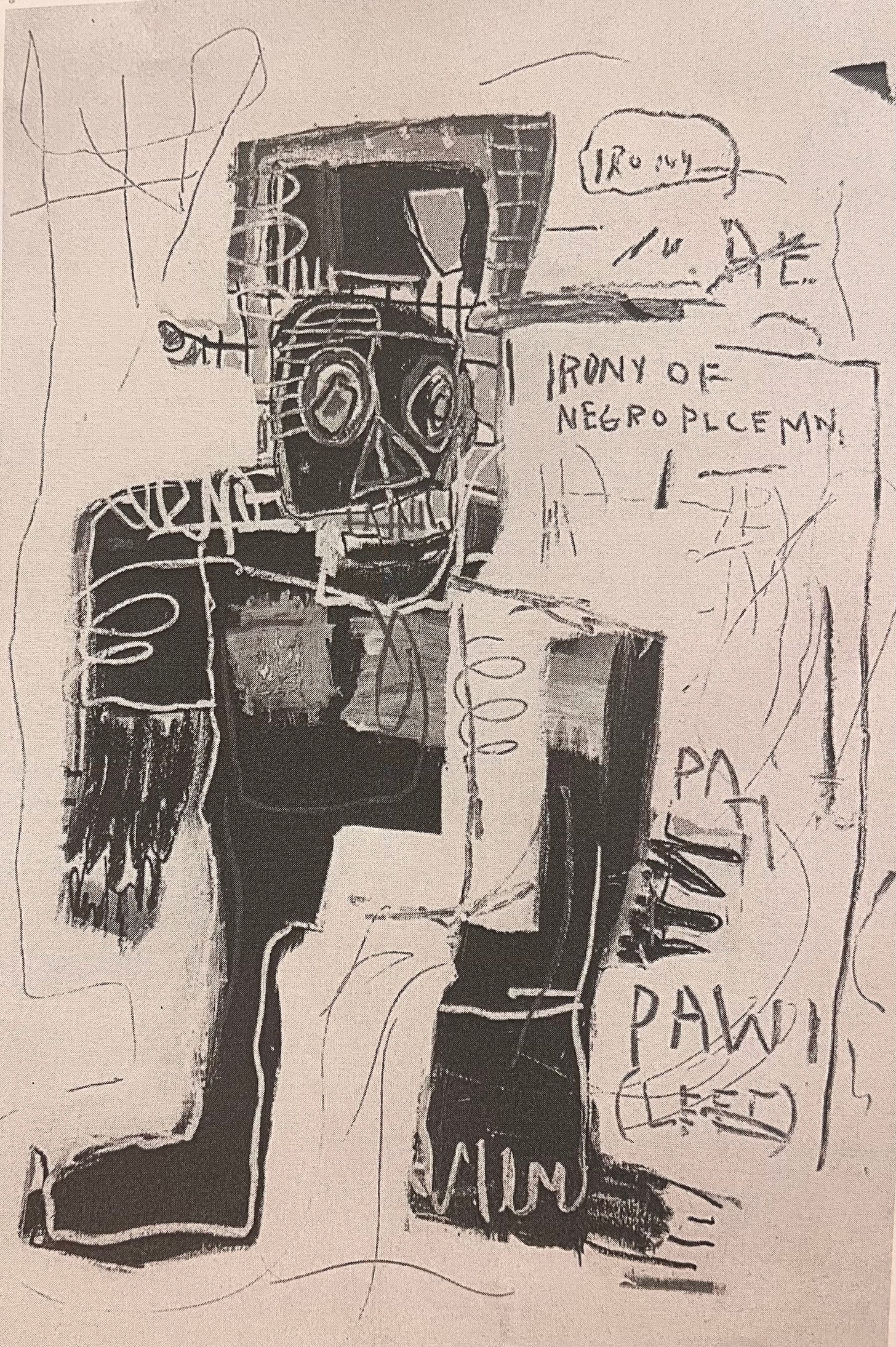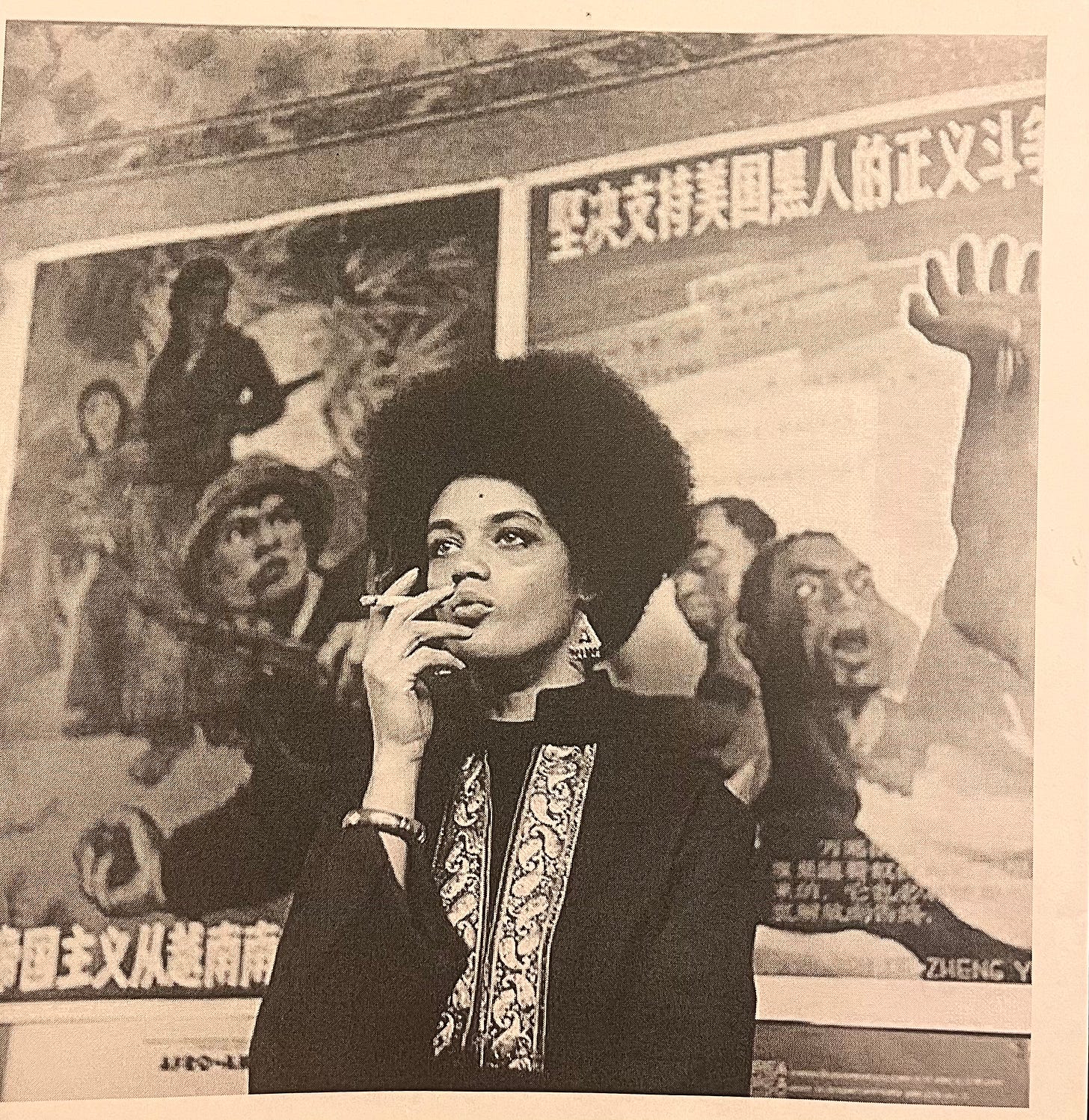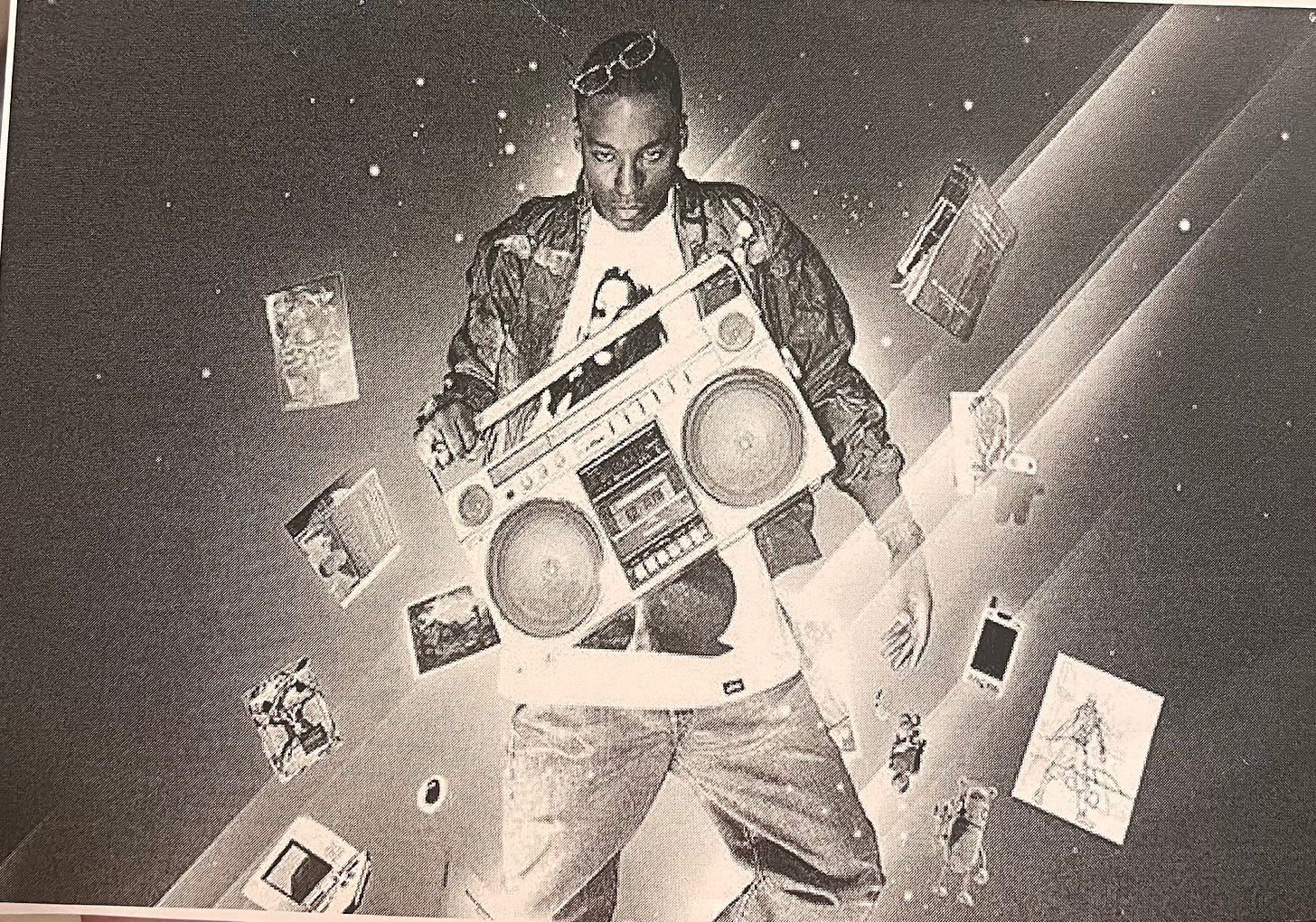Raising the Issue of Erasure within the Periphery
Afro-Indigenous Identity, Systemic Violence, and humanizing Delonte West
Disclaimer: I’m going to maintain my honesty, but I’m going to refrain from over-exceeding the norm of honesty. We live in a dishonest society. Collectively, we wake up to lies and often… we work within some sort of lie. Thus the challenge of choosing to operate outside of the norm of honesty.
In 2020, I interned for the Colorado 6th Judicial District Attorney, Christian Champagne. I worked with Christian during his second and final term for La Plata County.
My role at the District Attorney’s office included the following efforts: research and data-analysis regarding inequities within the criminal justice system per the Colorado Department of Justice, comparative and qualitative research on the moral ambiguity of the criminal justice system, and a film and media project on the prosecution team’s sensitivity training with an out of state social-justice organization.
I had my own space at the District Attorney’s office. In my space; I hung up pictures to keep me focused and to stay grounded. At my office at the La Plata County Courthouse, I hung a black and white printed copy-paper image of Jean-Michel Basquait’s Irony of the Negro Policeman (Basquait, 1981). Basquiat is remembered and respected today for reasons beyond words, including (but not limited to); his heavy critique of society and his ability to portray that critique through art.
In total, I chose 10 black and white copy-paper images to hang up at my office. I wanted all the images to help me feel comfortable at the courthouse and to be open to learning, problem-solving, and communicating effectively with the DA and his team.
In this particular space of words (and yet, another last resort contribution to what’s left of society), I will weave all the remaining images that were featured at my desk at the La Plata County District Attorney’s office. Aside from the first brief explanation above- I will provide a second brief explanation for the second image, and the remaining images will only have a caption with no additional explanation. The remaining images were chosen for my office for their own reasons, however, these images can also simply support the next image and the initial image’s explanation.
This is an attempt to illustrate and express fathomless observations pertaining to: The Humanization of Delonte West amidst the precise and intentional exhibition of Afro-Indigenous identity in America.
The second image featured at my desk at the DA’s office was a picture of Jameer Nelson and Delonte West at St. John’s University- playing basketball in the NCAA. I intentionally chose an image of West featuring Jameer Nelson because I appreciate the camaraderie they represented and I have core memories of watching Nelson compete during Derrick Rose’s time as a Chicago Bull. However, I mainly chose this image because of what I felt (and feel) Delonte West symbolizes.
I grew up watching Delonte West compete as one of the best combo guards in the NBA. He was really good. He was fun to watch. As I grew up and watched him grow up in the league, I noticed controversial headlines he would be involved in. I didn’t understand it for a long time. I still don’t, it doesn’t quite add up to me, but also it’s not my business.
As I got older, I eventually realized he is Black and Native American among other identities. I related to that because I am Black and Alaska Native among other identities. When I learned about his identity, I felt like I understood his journey more than I thought I ever would. I genuinely felt like I subconsciously opened up a can of worms- because as Delonte West was increasingly involved in the headlines, I felt like I was witnessing a public display of his dehumanization.
At the time- of including this photo in my office- I was in one of my last chapters of college. I started off college as a women’s basketball player with my twin sister. We did not get to complete college as a women’s basketball players- for reasons we did not decide, beyond our control. I liked having an image of West and Nelson competing and succeeding at the collegiate level of basketball because I felt inspired.
Aside from the inspiration, the image of West and Nelson provided an opportunity to heal and process reality. I lost basketball, and it was painful. Delonte West lost basketball, and he was incredibly vocal about the pain and grief he experienced within losing basketball. Prior to losing basketball, West would often express how much the game meant to him and how there were times where it was all he had. He was given platforms in several sports media outlets to support his chance to return to the league, after he lost his roster spot. Delonte didn’t get another chance at an NBA roster. Sports platforms became inaccessible to him, and meanwhile, his struggles were exploited.
When I was working at the District Attorney’s office [in 2019], news was circulating on social media about Delonte West struggling with transience and addiction. If you searched his wikipedia page 5 years ago from today (in 2019), you would read the same opening paragraphs in his “Personal Life” section that you will find today- as of October 2024.
West’s “personal life” section on wikipedia begins with describing his racial identity, which includes Black and Piscataway. Next, mental diagnoses that have been publicly discussed are listed. Then, excerpts of his criminal record are disclosed. Finally, West’s brief “personal life” section on wikipedia includes personal challenges with finances, details of homelessness, and details of drug use and overdose.
Delonte West’s wikipedia is one of few records of his life. His wikipedia page merely includes an identity with no further context or recognition. A DSM-5 badge of honor, but no context of what he’s managed to survive within generational transition. Generational transition in which few can comprehend due to compound erasure. A criminal record with lack of input or commentary from the “criminal”. Detailed experiences of pain with no sign of resources that might support him or his family.
Delonte West’s personal challenges have been featured all over social media. Several instances of West being recorded without his consent during times of distress can be found across social media platforms. Several content creators post content emphasizing how “sad” his story is. Sports talk shows talk about his rise and fall. There’s been news segments about him being on the street or facing charges within his experiences of being on the street.
The act of purely recognizing Delonte West as an athlete who lost it all, erases his journey as a human being. Delonte West grew up in a challenging environment. Delonte West’s challenges were a result of his environment and his personal experience and possibly generational influences.
Black people in America often experience inequity and systemic violence. Native American, Indigenous, and Alaska Native people in America often experience inequity and systemic violence. Individuals who are Black and Native American in America, or Afro-Indigenous in America, or Afro-Native in America- experience inequity and systemic violence.
America was established upon the blood, sweat, and tears of both- genocide and slavery.
Disregarding Delonte West’s life journey to fixate on his status as an athlete is cognitive dissonance. This cognitive dissonance is consistent with the avoidance of consistent epistemic violence in institutions like the criminal justice system, medicine, housing, education, sports, and even media.
I often find myself frustrated with the mass-neglect of anti-Black, anti-Indigenous, and ableist stagnancy in education. I feel a similar level of frustration with the mass-neglect of anti-Black, anti-Indigenous, and ableist stagnancy in professional sports.
These aforementioned institutions keep going no matter what. They don’t stop to help anyone who is hurt. They don’t pick up anyone who has fallen, they don’t pick up the dead bodies. People become so attached and ingrained within the institution that they too- fail to recognize a fallen person. They will trample over dead and dying bodies.
I was a teacher- a student teacher, an after school program coordinator, a summer school program coordinator, a basketball coach, an emergency-credential teacher, and I even was a special education Master in Education teaching candidate.
I have served the public sector for absolutely nothing in return- aside from targeted racism, death threats, bomb threats, minuscule criticism, and ostracization.
I learned from my students, I learned from mentor-teachers. I am grateful for some connections I made with other teachers and I am grateful for what my students taught me over the years.
In June 2024, I released an album on streaming services. This album is one of the first times I got to have support and ears and press-releases to truly deliver a body of work. The album is called; “The Phantom of…”. I started producing tracks for this project 5 years ago- when I was in my final year of college, working for the 6th Judicial Colorado District Attorney.
I planned “The Phantom of…” project and its concept for about a year. I wasn’t able to send the project out to distributors until a week prior to the release. As soon as the music was submitted and pending the June 8th release, I wondered if I would be alive to see the release.
I wondered if the internet and electricity would still be accessible for people to hear. I see so many people losing their homes all over the world. I see rent consistently going up almost everywhere. The masses are finally kind of like, “is this collapse?”.
And as they wonder if it’s indeed collapse; the collapse just keeps collapsing. The only qualm is, the masses only have an emotional or physical response to said collapse, when it hits home or there’s some sort of connection to identity or their day-to-day.
Would I have been bummed if the project never saw the light of day? I want to say no. I only say that because of 3 reasons.
I know how to pivot to survival mode. My ancestors made sure of that. Call it a trauma response if you want.
My projects are deeply personal. Point blank.
Being a Gen-Z independent artist means your audience is whoever still keeps tabs on you for whatever reason. A good majority of my “followers” on any given social media is people who never understood me or never liked me or wanted to understand me. Or it’s mutual artists or there’s genuine supporters or “family”.
I kind of hate that I have to be like “hey everyone new music blah blah blah” because so many people don’t engage with it unless I do xyz- and as long as I’m independent- I am not going to cater to anyone to get a listen or whatever engagement is relevant.
Social media came out when I was a freshman in high school. I went to 3 different high schools, totally different cultures at each school. I sort of fit in at the first school, but also stood out way too much. At the last 2 high schools I was an extraterrestrial being.
Social media to me has always been a joke or a place to be very serious and not taken seriously. I find people can be serious when they need or want something, when they want to hate, or when they want to love.
I keep waking up each day, and I am continuously coming to terms with the fact that social media isn’t innocent and it never was. We’ve been conditioned to view the surveillance state as innocent and light hearted and ROFL.
The reality is, social media is making us desensitized and it’s distracting us and- simultaneously- it’s contributing to multi-faceted barriers in accessibility and equity. A lot of us have been looking down at our phones for at least 17 years now, y’all. Sometimes we have really meaningful connections on our screens, sometimes we create something beautiful, sometimes we explore, sometimes we find the answers.
We still haven’t found the answer to division. We don’t have the answer to enhancing the quality of life of the masses. We don’t have the answer to how to respond to the times we are living in. We don’t have an answer for liberation.
We have whatever the heck we have y’all. and one of the things we “have” is meaningless and arbitrary-multi-media discourse about P R E S S I N G real world problems. Time is of the essence, beloved.
If we take time to learn. If we take time to share. If we take time to willingly give up a lot of what we desperately cling on to… we could build solutions.
This is an attempt to illustrate and express fathomless observations pertaining to: The Humanization of Delonte West amidst the precise and intentional exhibition of Afro-Indigenous identity in America.
The Humanization of Delonte West amidst the precise and intentional exhibition of Afro-Indigenous identity in America highlights and coincides with the Issue of Erasure within the Periphery.













